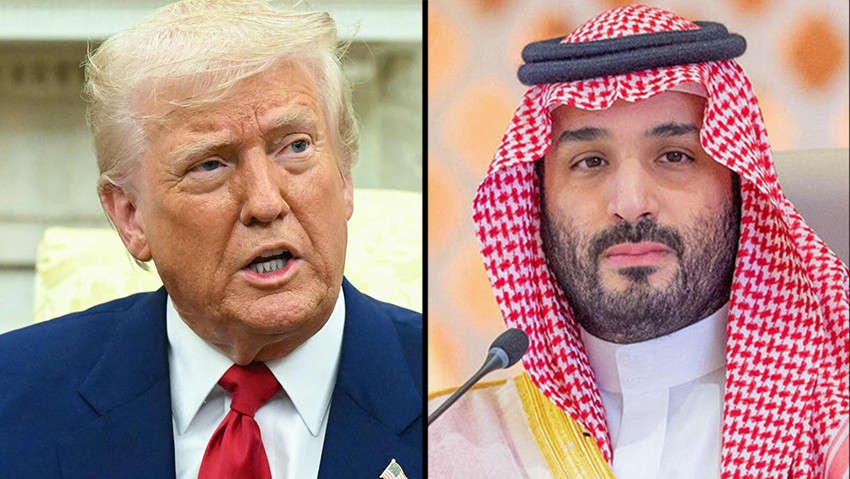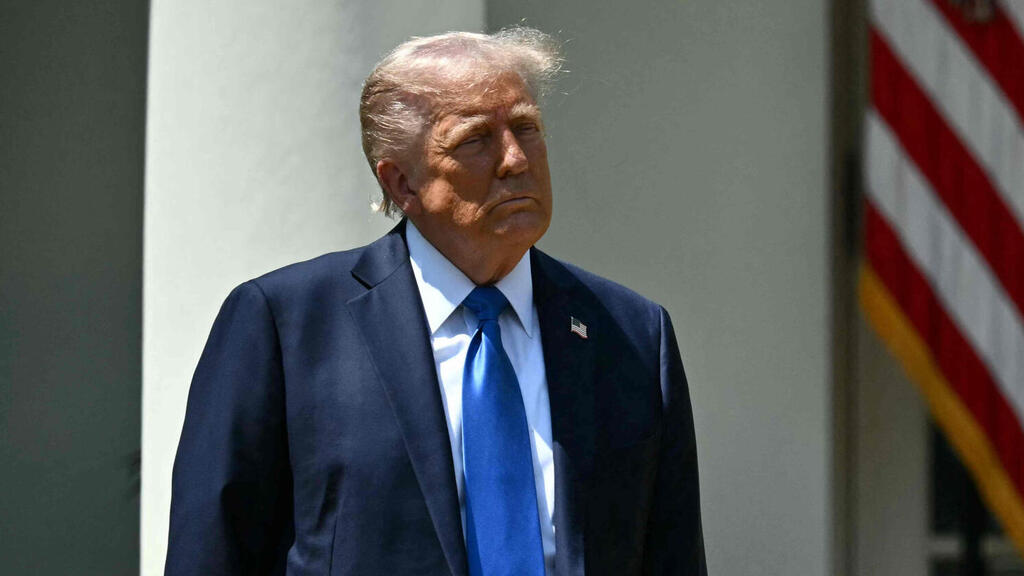The first 100 days of President Donald Trump's second term may not yet offer firm conclusions, but they unmistakably signal a pivotal shift in leadership direction. Trump’s early high-profile decisions suggest a presidency shaped by heightened uncertainty, the erosion of long-standing norms, economic turbulence, and the rise of militant nationalism—at a time when traditional alliances are being overshadowed by assertive, inward-looking agendas.
These dynamics are already pointing to a potentially chaotic and disruptive chapter in the history of the U.S. presidency, one intent on dismantling the "global order." A clear early indicator of this trajectory can be found in his tariff policy—rooted in Trump’s business instincts and shaped by bitter lessons from the late 1970s—which challenges foundational principles of global trade, supply chains and access to raw materials.
Interestingly, in the president's worldview—where power and wealth are closely intertwined —the Sunni Arab world stands at the heart of his international agenda. In his first overseas trip to the Middle East, Trump's focus will be on two of America’s long-standing and affluent allies: Saudi Arabia and the UAE, alongside Qatar. While discussions in Abu Dhabi are expected to emphasize deepening economic ties, particularly easing export restrictions on advanced Nvidia chips - the real spotlight will be on Riyadh.
The visit to Saudi Arabia appears poised to follow a deliberate strategic blueprint. In a move that mirrors his first term, Trump is once again choosing the Kingdom as the stage for his initial overseas engagement—signaling both continuity and intentional messaging. The 2017 visit, widely viewed as a diplomatic and media triumph, culminated in multi-billion-dollar arms agreements that not only strengthened U.S. defense exports but also reinforced Washington’s military-industrial footprint in the region.
By returning to this tested formula, Trump is strategically reaffirming longstanding alliances while leveraging defense and tech cooperation as pillars of his broader geopolitical agenda—especially amid growing competition with China and renewed focus on Middle Eastern stability.
2 View gallery


U.S. President Donald Trump, Saudi Crown Prince Mohammed bin Salman
(Photo: Nathan Howard/AP, Omar Al-Qattaa/AFP)
At first glance, the upcoming visit to Riyadh seems poised to deliver another high-profile success for the Trump administration with a new wave of arms deals—reportedly around $1 trillion—expected to be unveiled. While these agreements will bolster U.S. defense exports, they may also raise serious strategic concerns for Israel, particularly regarding the preservation of its qualitative military edge in the region.
However, the deeper and more consequential development lies beneath the surface: the White House's growing openness to supporting the establishment of civilian nuclear capabilities within Saudi Arabia—a move that could reshape the regional balance of power and increase the future potential for a nuclear arms race in the Middle East, especially in light of the Kingdom's interest in enriching uranium in its territory and its traditional lack of interest in committing to the IAEA's biting inspection mechanisms.
And where, one might ask, does Israel stand amid all this apparent diplomatic and economic prosperity? Aside from the legal obligation requiring the U.S to uphold Israel’s qualitative military edge when exporting arms to the region (QME legislation), the emerging strategic triangle — United States-United Arab Emirates-Kingdom of Saudi Arabia—appears to be advancing without Jerusalem at the table.
Get the Ynetnews app on your smartphone: Google Play: https://bit.ly/4eJ37pE | Apple App Store: https://bit.ly/3ZL7iNv
While previous American administrations, including Trump’s first term, maintained that any Saudi progress toward civilian nuclear capabilities must be linked to normalization with Israel, the current trajectory seems to diverge. Driven by a desire for swift diplomatic wins and deep skepticism toward Prime Minister Benjamin Netanyahu’s stance on the war in Gaza, Trump signals a willingness to bypass these long-held preconditions—potentially undermining Israel’s long-term strategic and security interests.
 Avi KaloPhoto: Aloni Mor
Avi KaloPhoto: Aloni MorIsrael’s foreign relations are steadily eroding under the weight of the chronic strategic paralysis plaguing Netanyahu’s sixth government—a paralysis rooted in the prime minister’s ongoing criminal trial and the fragile grip of a coalition beholden to extremists. This government’s refusal—or inability—to engage meaningfully with even the broadest outlines for the outcome of the Gaza war underscores even a deeper crisis: Israel, once seen as a model of pragmatic and strategic diplomacy, is now viewed by many in the region and beyond as an obstacle rather than a partner.
This failure to respond to a shifting regional landscape not only isolates Israel but signals a departure from the tradition of measured, wise and responsible statecraft that once defined its regional posture. As the consequences of this diplomatic inertia begin to seep into every facet of national life, and with Israel standing on the brink of mounting regional complexities, the public must confront a sobering question: Is this truly the leadership we envisioned—or merely the cost of political survival dressed as strategy?


